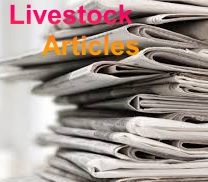Klein Karoo International
Klein Karoo International (KKI) is a multi-faceted organization aimed at providing top-quality ostrich derived goods – leather, feathers and meat – to the world.
The main objective of Klein Karoo International is to reinvigorate the market and a sustainable ostrich industry, whilst adhering to responsible farming practices.
Klein Karoo International (also known as Cape Karoo International) was founded in 1945 and has since produced luxury items from ostrich leather and feather, as well as top-quality ostrich meat products.
Klein Karoo International's inception is intertwined with the history of commercial farming of ostriches in South Africa, which started in the 1860’s and led to an economic boom in the Little Karoo region, creating wealth and prosperity in the semi-arid area due to the high demand of feathers in European markets. Later, leather and meat production was also introduced to the export market.
Presently approximately 200 producers, collectively renowned as leaders in the industry, supply Klein Karoo International. The company subscribes to a set of principles that ensure humane treatment of livestock, environmentally friendly practices, and continuous innovation. Ethical corporate and social values, with a respectable and dignified work environment, are also encouraged.
Klein Karoo International is committed to adhering to all international standards in relation to farming practices, processing, export requirements, biodiversity management, biosecurity, and the humane treatment of ostriches, as prescribed by the industry’s code of conduct and regulations.
Ostrich Meat Products
Klein Karoo International specialises in the production of ostrich meat and leather products, with an emphasis on animal welfare and sustainable farming practices.
Their range of products are also available through Cape Karoo Meat, which advertises their product range, accreditations and also supplies various ostrich recipes.
Ostrich meat is high in protein, but low in calories, which makes it a popular choice for a meat lover’s balanced diet. Its characteristics and versatility makes it ideal for home cooks and chefs alike, whether preparing protein-packed meals or light lunches.
Furthermore, Klein Karoo International is committed to sustainable farming practices, which translates into their product’s superior quality and taste. All the Ostrich meat is fully traceable back to the farm and is endorsed by the South African Heart Foundation.
Their Ostrich meat range includes fillet, which is the most tender cut of the ostrich, available as tenderloin, fan fillet and eye fillet; steak, which is available in different sizes and sold as individual portions, as well as bulk packs; and goulash, also known as diced meat and perfect for winter stews, pasta and sauces.
Klein Karoo International's pre-grilled ostrich meat range is available year-round and is seared for tenderness and juiciness. It is a convenient, high-quality product that is suitable for both retail and foodservice purposes. The range is sold in South African supermarkets, as well as international markets like France, Germany, Switzerland, Britain, Italy, Holland and Belgium.
Klein Karoo International is fully accredited by various local and international food associations, such as International Food Standard Certification, DAFF Export Compliance, National Independent Halaal Trust, and The Heart & Stroke Foundation.
Ostrich Leather and Feather Products
Klein Karoo International is the leading supplier of raw ostrich leather and feathers, as well as luxury leather items sold on the Cape Karoo Emporium.
Ostrich leather processing at Klein Karoo International - also known as Cape Karoo - has advanced tremendously since ostrich skins were first processed here in the 1970s. Technological advancements and on-going research have enabled Cape Karoo to produce the very best exotic leather from farm-reared ostriches exclusively.
Cape Karoo represents more than 800 farmer members and is the biggest supplier of ostrich leather in the world. The Leather Marketing division is the only ostrich leather manufacturer that offers its products in 37 standard colours in its range of more than 300.
The Cape Karoo Emporium showcases modern and colorful ostrich leather products, such as wallets, handbags, shoes, belts and other accessories.
Ostrich feathers have long been the epitome of style and elegance in the fashion industry. It is most often dyed in a range of colours and used in costumes, for theatre productions, carnival shows and circus performances.
Klein Karoo International has for many years supplied the Moulin Rouge with ostrich feathers and exquisite costumes, as well as the street carnivals of South America where celebrations, dancing, colour and mirth, and thousands and thousands of ostrich feathers go hand-in-hand. Furthermore, they supply feathers to event services that decorate weddings and other celebratory events.
Ostrich Farming Practices
The birds are transported live to Klein Karoo International ostrich processing facility which is designed to comply with relevant animal health, abattoir hygiene, and process and facility directives.
Klein Karoo International is committed to the sustainable and responsible farming of ostriches. Their ethos extends beyond the farmland and into the production and distribution of ostrich feather and leather products, with a focus on low impact manufacturing.
Klein Karoo International’s ostriches are raised to a live mass of about 90kg in natural surroundings on privately owned farms. The producers are dedicated farmers, aiming to raise the birds in the most acceptable way according to the legislation of the EU and DAFF. All ostriches from KKI are bred using good animal welfare protocols.
Their ostrich farming practices are based on a few fundamental freedoms - freedom from thirst, hunger and malnutrition; freedom from discomfort, pain injury and diseases, as well as freedom from fear and distress.
Ostriches are fed on pastures such as wheat, alfalfa, and alfalfa hay as well as energy and protein supplements to ensure a balanced ration. This includes energy sources such as maize, barley, oats; protein sources such as soya and canola; and roughage such as bran. All ostriches have individual official tags for traceability back to the farm.

.jpg)






